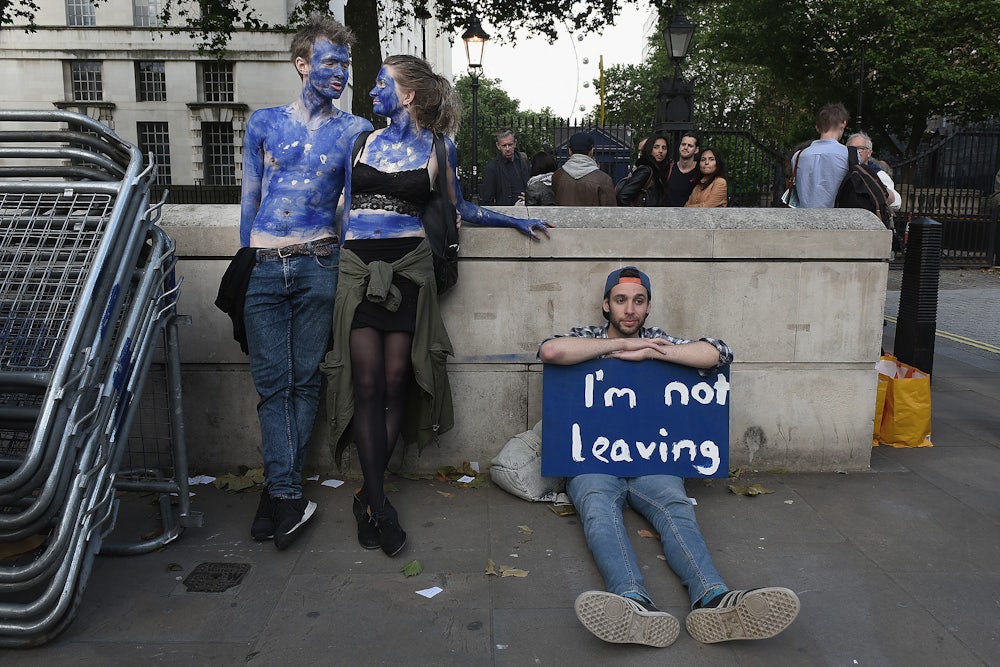Global equity markets lost $2 trillion in value on Friday, the steepest loss since the dissolution of Lehman Brothers in 2008. Traders on Monday pick up where they left off: namely, selling. Trading in shares of Barclays and the Royal Bank of Scotland was temporarily suspended due to plummeting losses. The pound is now at a 31-year low.
Meanwhile, Britain’s political class is in crisis, with no one seemingly prepared to take responsibility for Brexit and carry it out. Supporters of the “Leave” campaign have now publicly rescinded multiple claims they had made in the run-up to the vote: that immigration flows would stop once Britain left the EU, and that £350 million going to the EU would be diverted to the NHS. Nicola Sturgeon, the first minister of Scotland, is on a rampage, taking names and vowing to keep Scotland in the union.
PM & Chancellor who proposed #EUref are in hiding, those who campaigned for leave have no plan and the opposition is imploding. Disgraceful.
— Nicola Sturgeon (@NicolaSturgeon) June 26, 2016
Regions that voted to leave are realizing they benefit quite a bit from being part of the EU. There is a palpable sense of regret that Britain has doomed itself to be a smaller, weaker country—a feeling that, naturally, is now known as a “Bre-gret.” If Britain doesn’t go so far as to have another vote, perhaps it could weasel its way into remaining, according to a Princeton professor interviewed by the Times: “It would negotiate a new agreement, nearly identical to the old one, disguise it in opaque language and ratify it.” That just might be best for everyone, including the EU.
